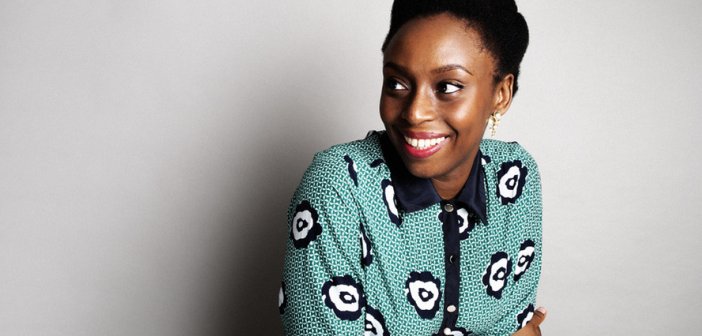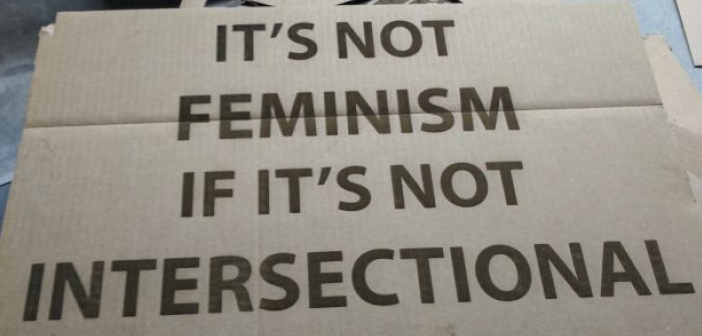Feminism, Inclusivity, & Repealing the 8th
March’s Strike4Repeal placed another spotlight on the lack of bodily autonomy and choice afforded to pregnant people in Ireland. The lunchtime strike, followed by the March4Repeal that evening, saw thousands of people protest in support of repealing the 8th amendment.
There is a diverse group of organisations joined in the fight to repeal the 8th. But even so, it could be argued that there is a lack of representation of people of colour, and those from the transgender, disabled and other marginalised communities within the movement. This isn’t something that is exclusive to the fight to repeal the 8th, but a common occurrence within western feminism in general.
Last month, author and feminist Chimamanda Ngozi Adichie was asked about her views on the place of trans women in the feminist movement. She remarked that “… The whole problem of gender in the world is about our experiences (…) I think if you’ve lived in the world as a man with the privileges that the world accords to men and then sort of change gender, it’s difficult for me to accept that then we can equate your experience with the experience of a woman who has lived from the beginning as a woman and who has not been accorded those privileges that men are.” Her comments were met with much online backlash.
This is another instance within western feminism where members of marginalised communities are spoken over instead of being given a chance to voice their own experiences. Although Adiche later tried to clarify her comments, statements such as these can often lead to assumptions and discrimination based on ignorance and fear.

Repeal and feminism are both very complex movements. Neither one is black and white. Being able to have a conversation around the diversity of experiences within a movement is important. These experiences can be used to broaden the inclusivity of a movement and acknowledge the nuanced positions of those in it as opposed to using those differences to exclude or ostracise.
Jane, a migrant rights campaigner with Migrant Rights Centre Ireland, says that repealing the 8th is crucial to Ireland’s migrant community.
“Repealing the 8th is important to all women who reside in Ireland, but for many migrants coming from countries with legal abortion it is quite shocking to find the existing legislation in an ‘advanced’ economy like Ireland,” she says.
Jane references the Savita Halappanavar case, where a woman’s life could have been saved under the policies in her home country, but who was allowed to die here because of the religiously motivated ban on abortion. “Beyond that, migrant women encounter more barriers to accessing health services than Irish citizens in general: language barriers, lack of information and support, visa status and usually low income are among the most common obstacles faced,” she says.
“I would love to see a substantial number of migrant women represented in the conversation around repealing the 8th amendment, as well as in various areas of Irish society in general.”
The Repeal campaign does well to represent migrants, with Malawian born Ellie Kisyombe speaking on behalf of migrants and refugees with her speech at last September’s march for choice. However, there exists the potential that the needs of migrants and refugees within other societies where they may not be allowed to vote, might be ignored. With vulnerability, and a lack of information and visa status, we can still expect many migrant people to continue feeling like outsiders in Ireland.

I ask Jane whether she thinks the repeal movement could change that. She tells me that representation could definitely be improved by providing more information that specifically targets migrant groups. “Maybe repeal the 8th material, as well as event updates, should be dropped in language schools, community centres, NGOs and in places that migrants usually attend,” she says.
Toryn, the administrative officer at the Transgender Equality Network Ireland (TENI), feels that it’s also important for trans people to have a right to choice. She says that trans men and non-binary people who were assigned female at birth can, and do, get pregnant too.
“The trauma of an unplanned pregnancy can have increased trauma for (trans people) as it can change their bodies in ways that can cause them incredibly deep discomfort and shame. As a result it’s really important they have the right to make a choice as to whether or not they will continue the pregnancy at that time.”
Toryn says that representation of the trans community has improved, but it could always be better. “This year we’ve seen a real shift towards trans people being included in the debate, which is fantastic. Groups like the USI have raised it as an important issue at the Citizens’ Assembly and we’re definitely seeing some positive representation and inclusive language,” she says. “But I think there’s a really long way to go.”
Toryn says that we need to stop referring to the 8th amendment as strictly a women’s issue. “This kind of language can be really hard for trans people,” she says. “As a woman who will never have the ability to get pregnant, it can feel rather isolating, and can remind me that my life will always be different from society’s view of what it is to be a woman.” Toryn also says that the stigma for a trans person trying to access these services and participate in this debate can be amplified, as they may face the oppression that cisgender women do, while also having to deal with transphobia.
Everybody who requires access to abortion services deserves the right to access them – and they should be able to do that regardless of gender identity, disability or nationality.
Making Repeal a more intersectional movement means acknowledging and embracing the diversity of experiences of those affected by the 8th amendment. But, more importantly, it means having the voices of those individuals represented at the forefront.
